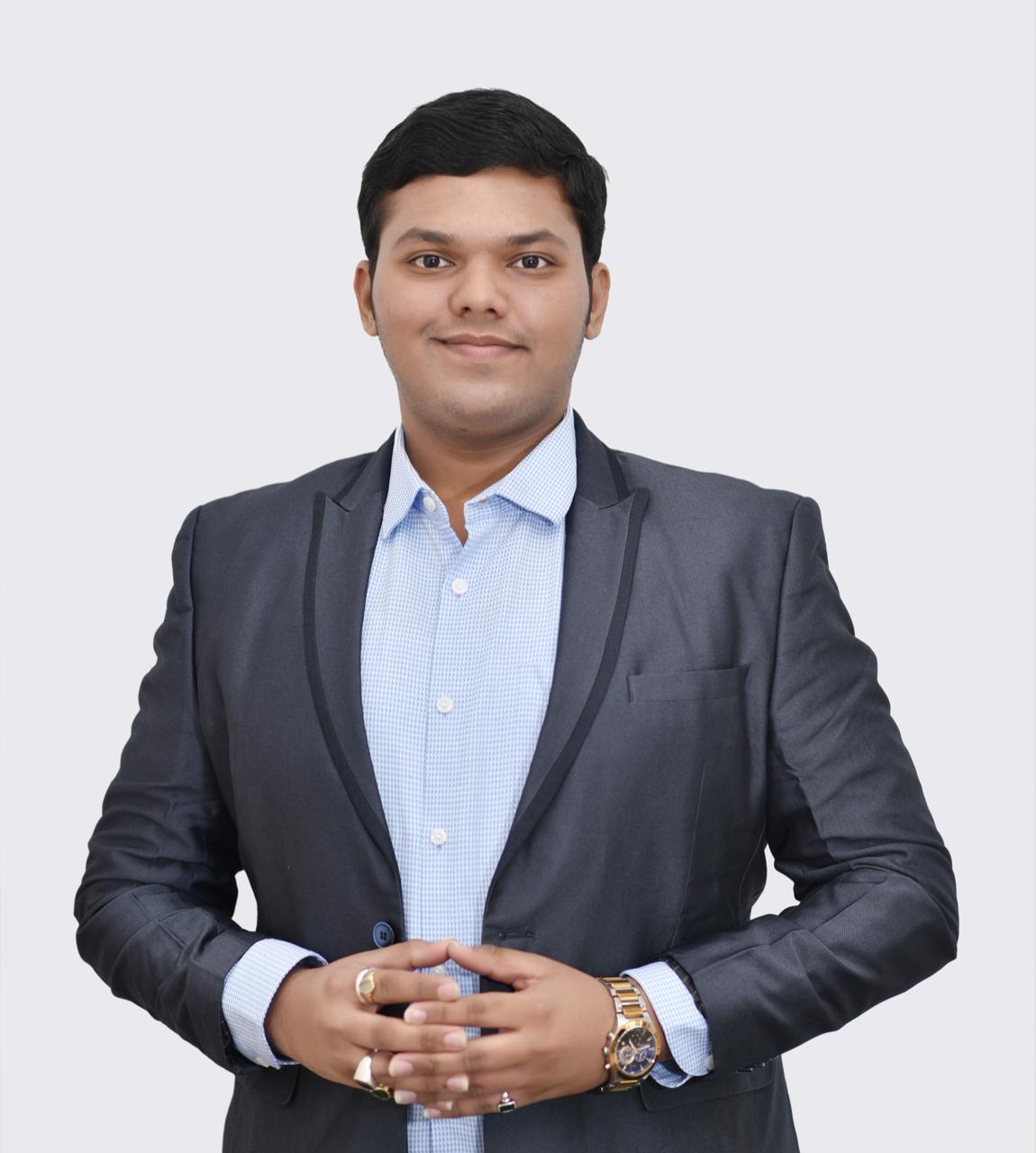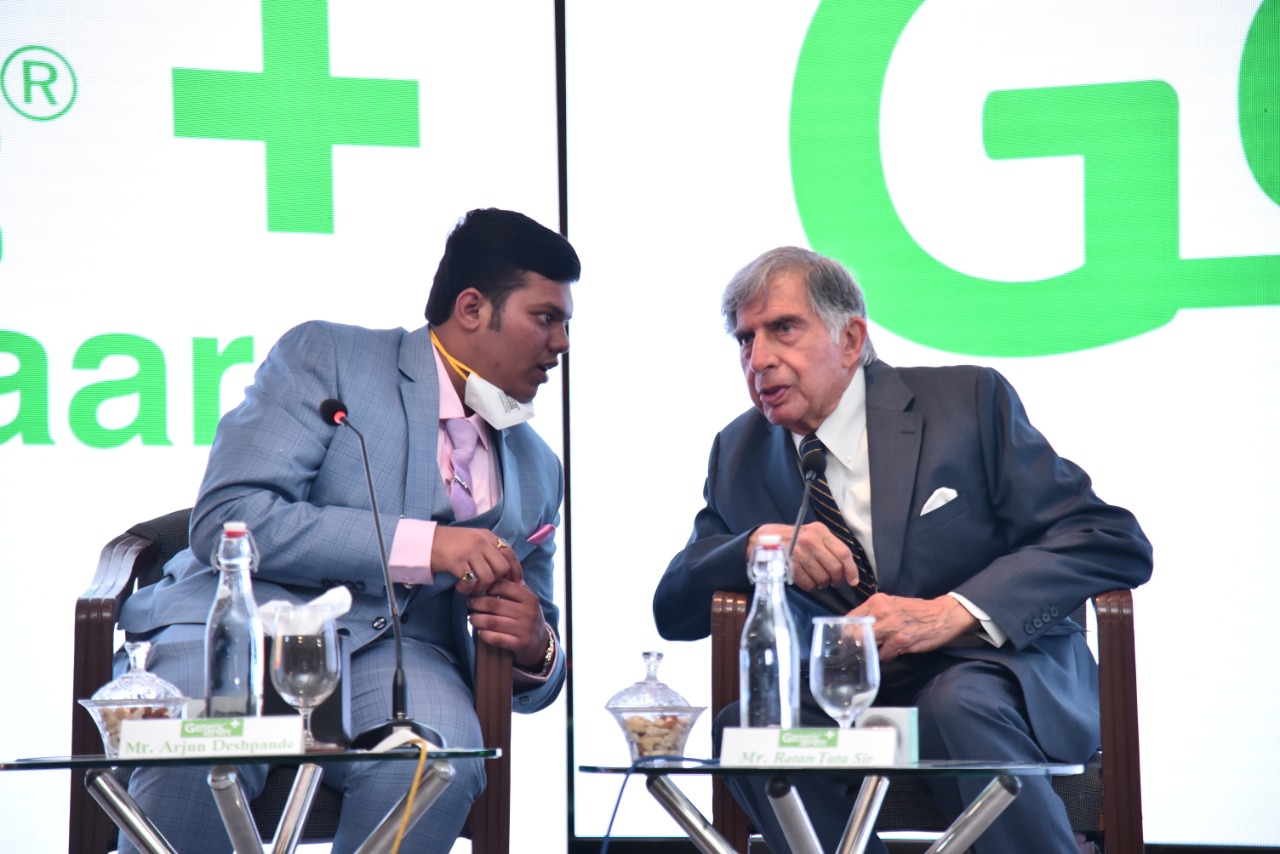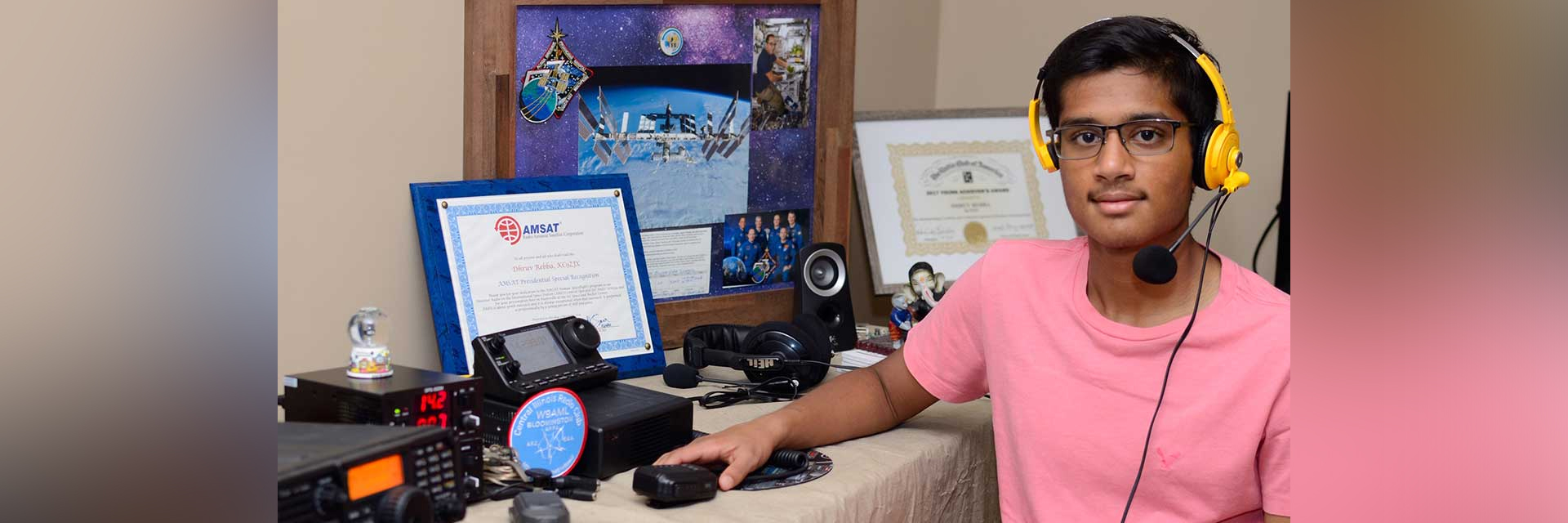(March 28, 2022) One balmy afternoon at a medical shop in Thane, the then 16-year-old Arjun Deshpande witnessed an unpleasant scene. An old man, deep in debt, profusely pleaded with a shopkeeper to pay a hefty medicine bill later. The shopkeeper refused. “His wife had cancer and his son, who was an auto driver, was the sole breadwinner. They had spent a lot on treatment, and were finding it hard to manage money for medicines daily. He was helpless, and felt guilty. I saw how a common man was burdened with paying bills for necessities like medicines. This made me determined to bring about a new era in the world of pharma,” says Arjun who started Generic Aadhaar in 2019 to help provide medicines to the aam junta at low cost.
In three years, Generic Aadhaar has a presence in all states, and has opened over 1,500 stores across India. Such has been the vision and mission of the startup that even Ratan Tata invested in it. “We share the same mission and want to serve people. When he saw the same vision and determination to work for the people, he spontaneously supported Generic Aadhaar,” Arjun says in an interview with Global Indian.

Arjun Deshpande is the founder of Generic Aadhaar
How a young boy got an idea
Born in 2002 in Thane to a mother who works in pharma, and a businessman father, Arjun learnt about the pharmaceutical industry at a young age as he often accompanied his mother on official trips. The 19-year-old understood that multinationals selling medicines were burning a hole in the pockets of the common man by adding “marketing and promotional cost.” “About 60 percent Indians cannot afford to buy daily medicines because of high prices. Since there is no alternative for medicines, MNCs have been selling medicines at a very high rate for decades,” says Arjun who is on a mission to eliminate middle-chain costs and provide medicines from manufacturer to end customers directly through a pharmacy-aggregator business model.
That appalling incident at a medical store made Arjun ideate. “At 16, I saw a burning problem. It made me realise that even though our country is a hub of manufacturers and suppliers of medicines, our people have to spend a lot of money on essential medicines. I believe medicines are not a luxury but a basic necessity. I didn’t let age come in the way of my innovative idea,” says the young changemaker-entrepreneur who initially didn’t begin with an ”intention of starting a business” instead wanted to “make an impactful change in society.”
View this post on Instagram
With the sole purpose to free people from the clutches of giant companies selling expensive medicines, Arjun opened the first franchise of Generic Aadhaar in Thane that provides medicines at up to 80 percent off. “The vision is to provide affordable medicines to 130 crore people in India at a price they deserve,” he adds, “by bringing all mom-and-pop medical stores under one roof to give stiff competition to big retail medical malls and online pharmacies.”
However, creating a place amid big pharma companies was a challenge for this teenager, who wanted to curb “illicit trade” in life-saving drugs and provide low-cost drugs. “Another challenge was to make them aware that there is no difference between generic medicines and branded medicines, for which we started ground-level campaigns and free health camps,” reveals Arjun. Soon Generic Aadhaar started to create a lot of buzz on social media and in the pharma sector. So much so that Ratan Tata decided to invest in Generic Aadhaar in 2020.
“Mr Tata was impressed with the venture, and saw how I was bringing change in the pharma sector. When I met him, he said, ‘Arjun, if this venture is successful, it can change the entire healthcare ecosystem for the betterment of India,’” explains Arjun who has found a mentor in Ratan Tata. “I feel fortunate to have such a business legend’s guidance and inspiration for my venture’s journey through which we both are changing the lives of millions,” adds the DAV Public School alumnus whose work is finding recognition in Nepal, Bhutan, Sri Lanka and UAE. “They are approaching us to open Generic Aadhaar franchises now,” beams Arjun with pride.


Arjun Deshpande with Ratan Tata
Medicines for the common man
The idea of providing medicines at a low cost, has now grown leaps and bounds. It hasn’t only provided direct and indirect employment to over 10,000 people but has also created 1,500 micro-entrepreneurs. “I believe that real India starts 50 km away from the cities. So, it is important to focus on the remotest villages for the development of India. We are expanding from Jammu to Kanyakumari and from Kutch to Arunachal Pradesh,” says Arjun who has served 20 lakh people through Generic Aadhaar.
The young change-maker and entrepreneur now plans to mark Generic Aadhaar’s presence in over 300 cities by 2022-end. “On Gudi Padwa, Generic Aadhaar is set to break its previous record of opening 25 franchises in a single day,” divulges Arjun who calls his parents his biggest strength. “When you are doing something good that can bring a change in society, parents always supports you,” adds Arjun.
Making the right moves
When he’s not neck-deep in work, Arjun loves a game of chess as it helps “boost creativity and analytical thinking skills.” He also loves reading books and playing football in his free time.
Arjun is popularly known as the robin hood of the pharma world. His advice to entrepreneurs, “identify a burning problem and then look for its solution and implement it on time.” He adds, “Innovation is complex but you need to have a winning idea. Successful entrepreneurs have unique ideas that make them stand out. What you need is to do things differently from what already exists,” Arjun, the changemaker and entrepreneur signs off.




